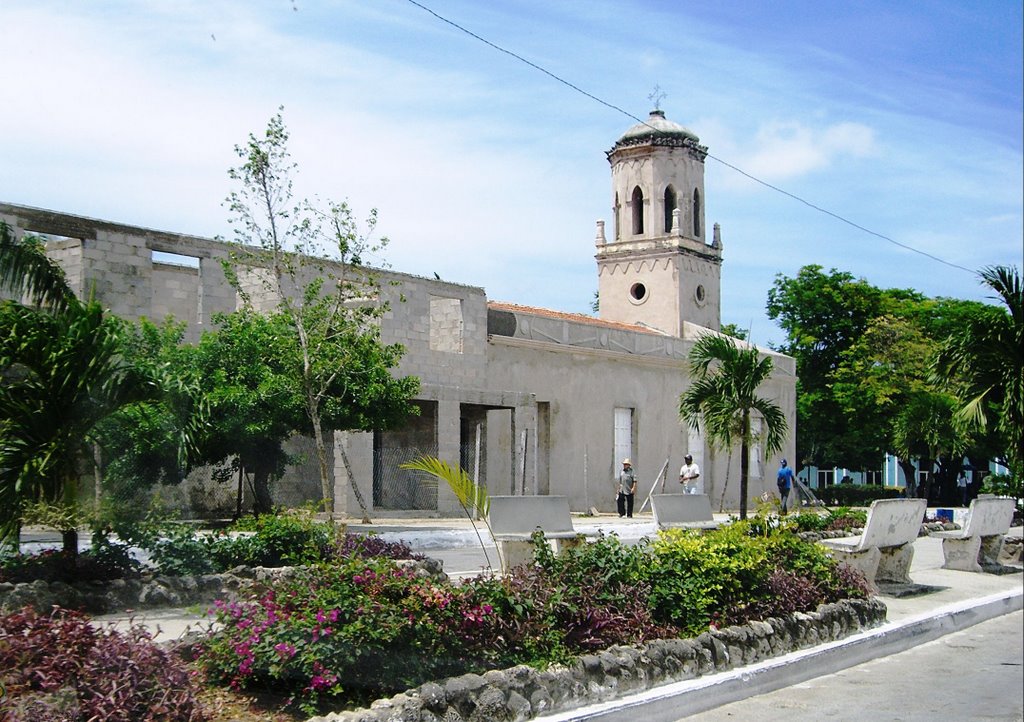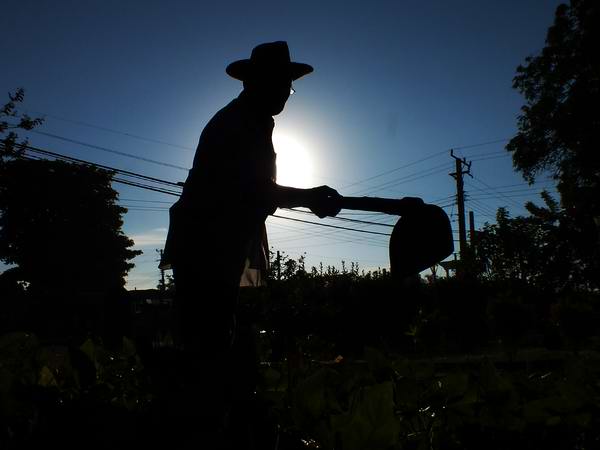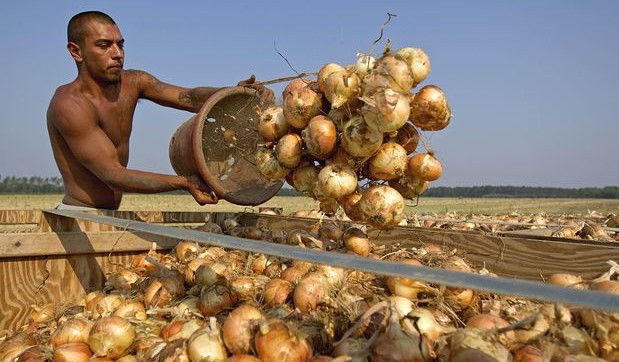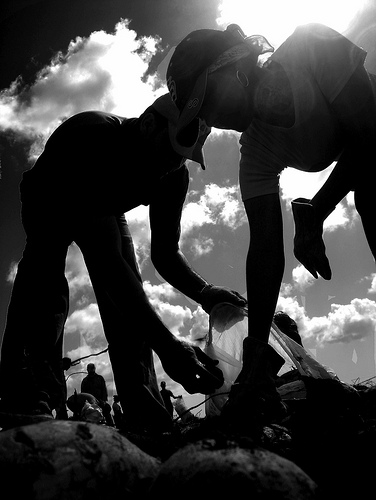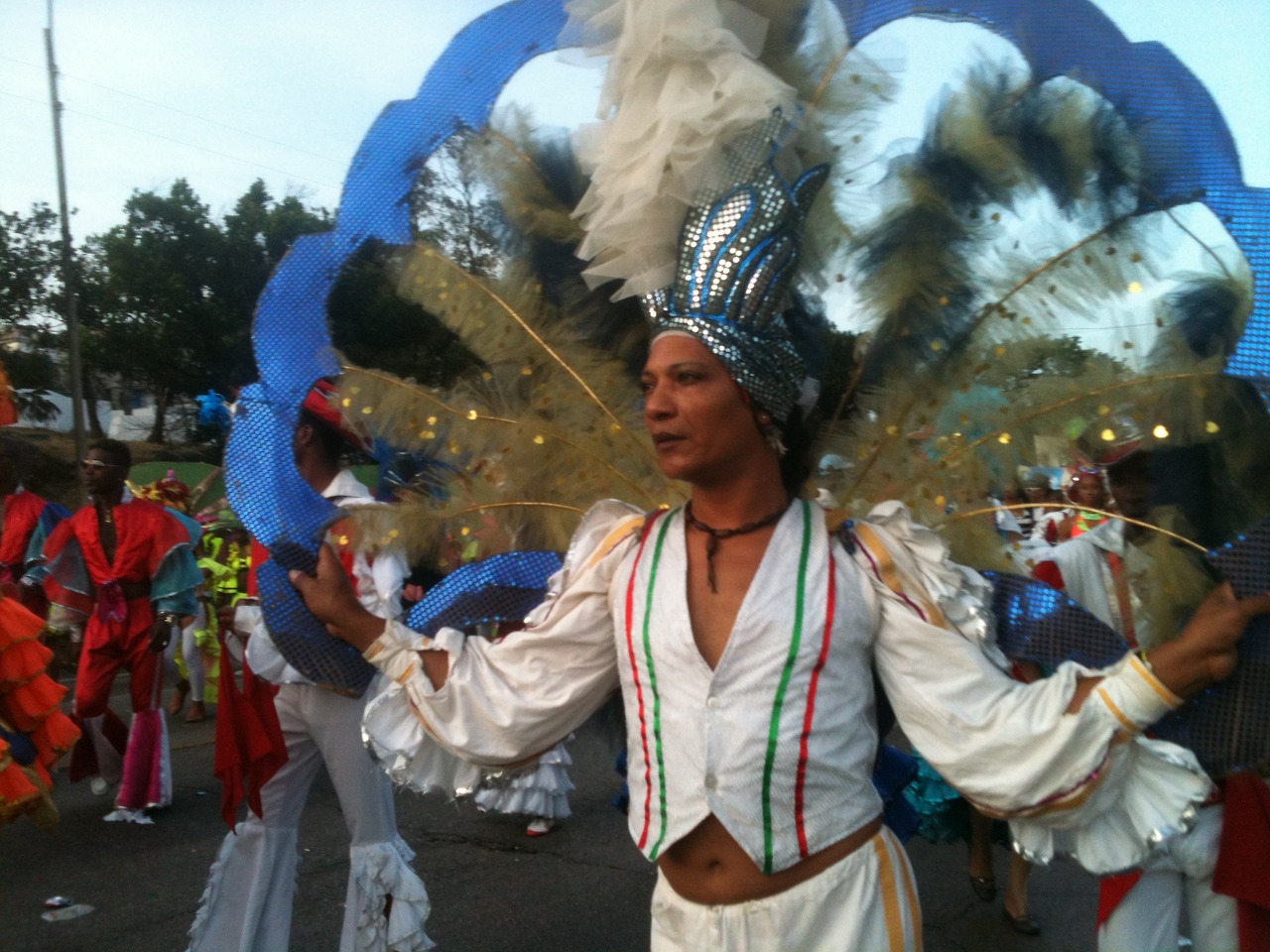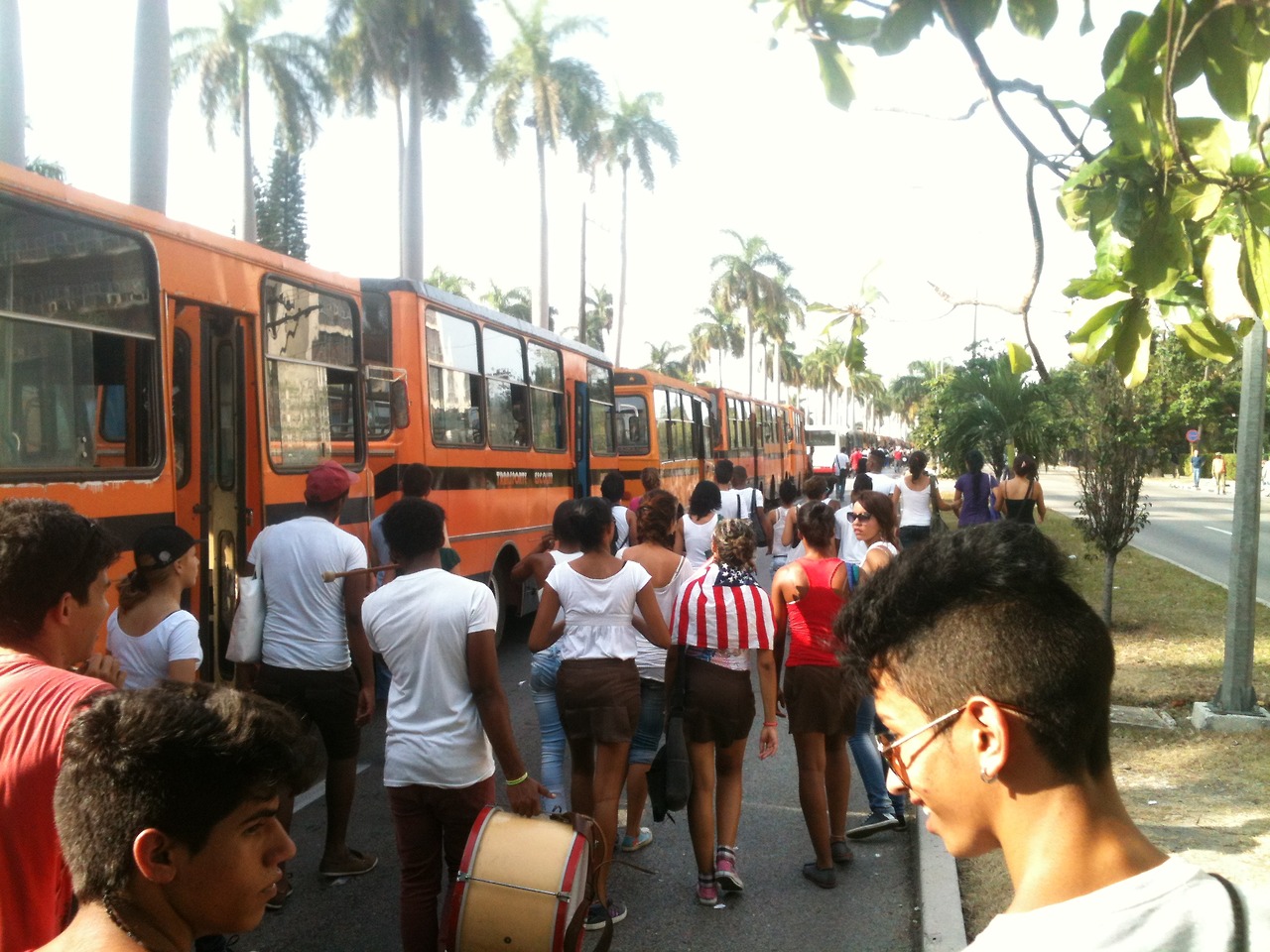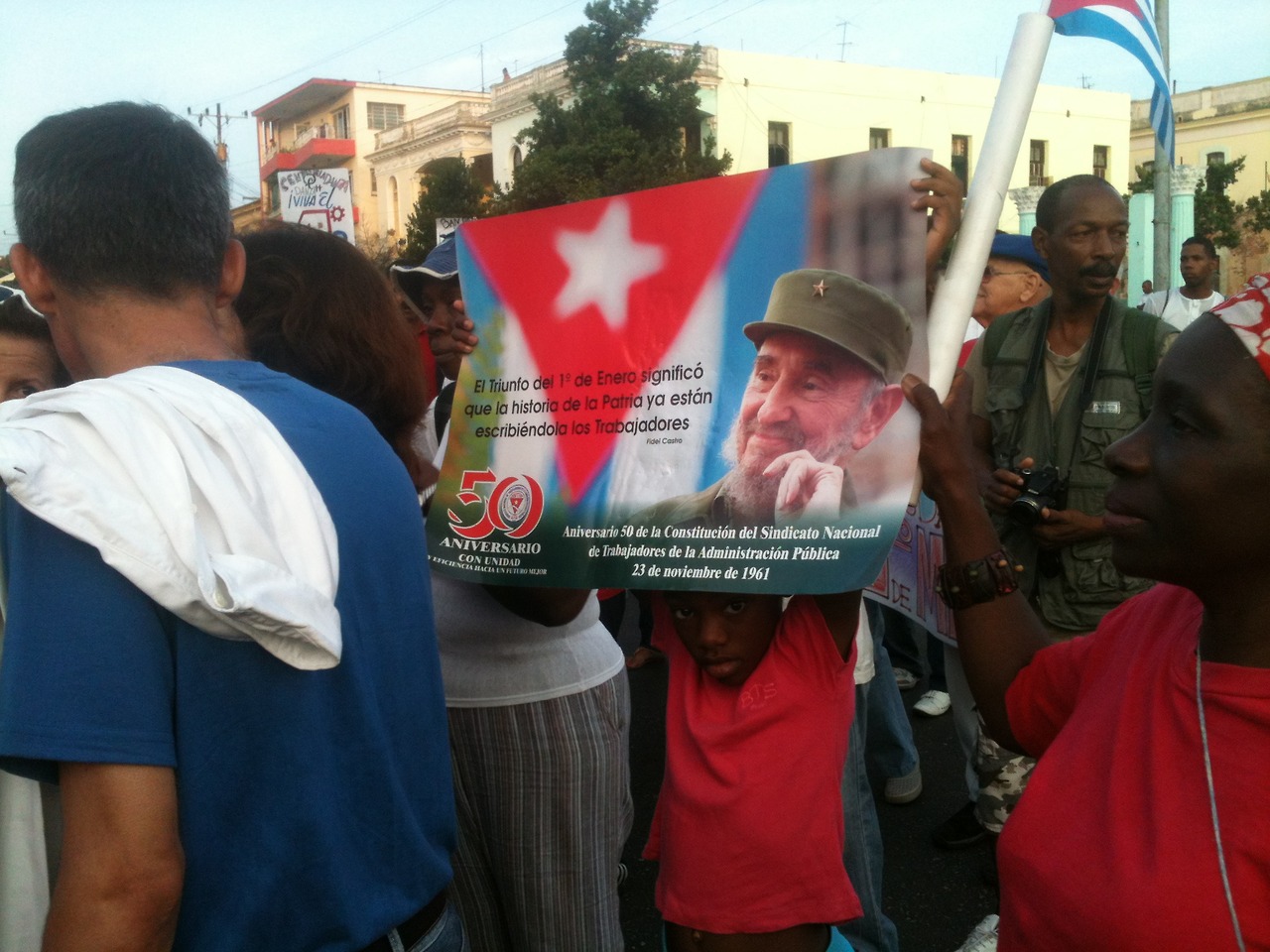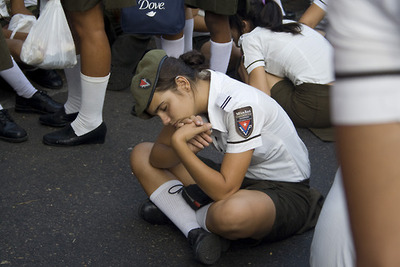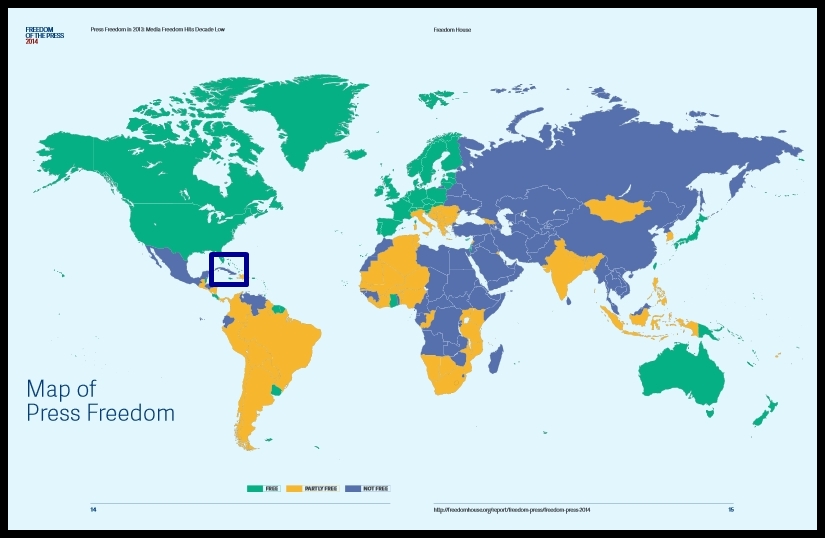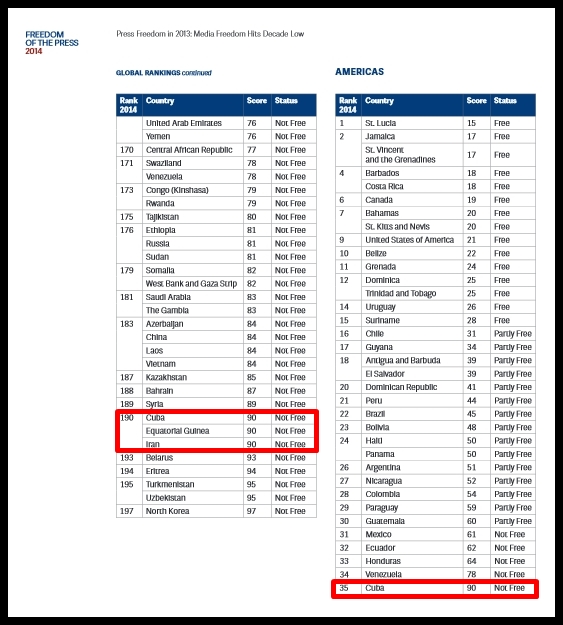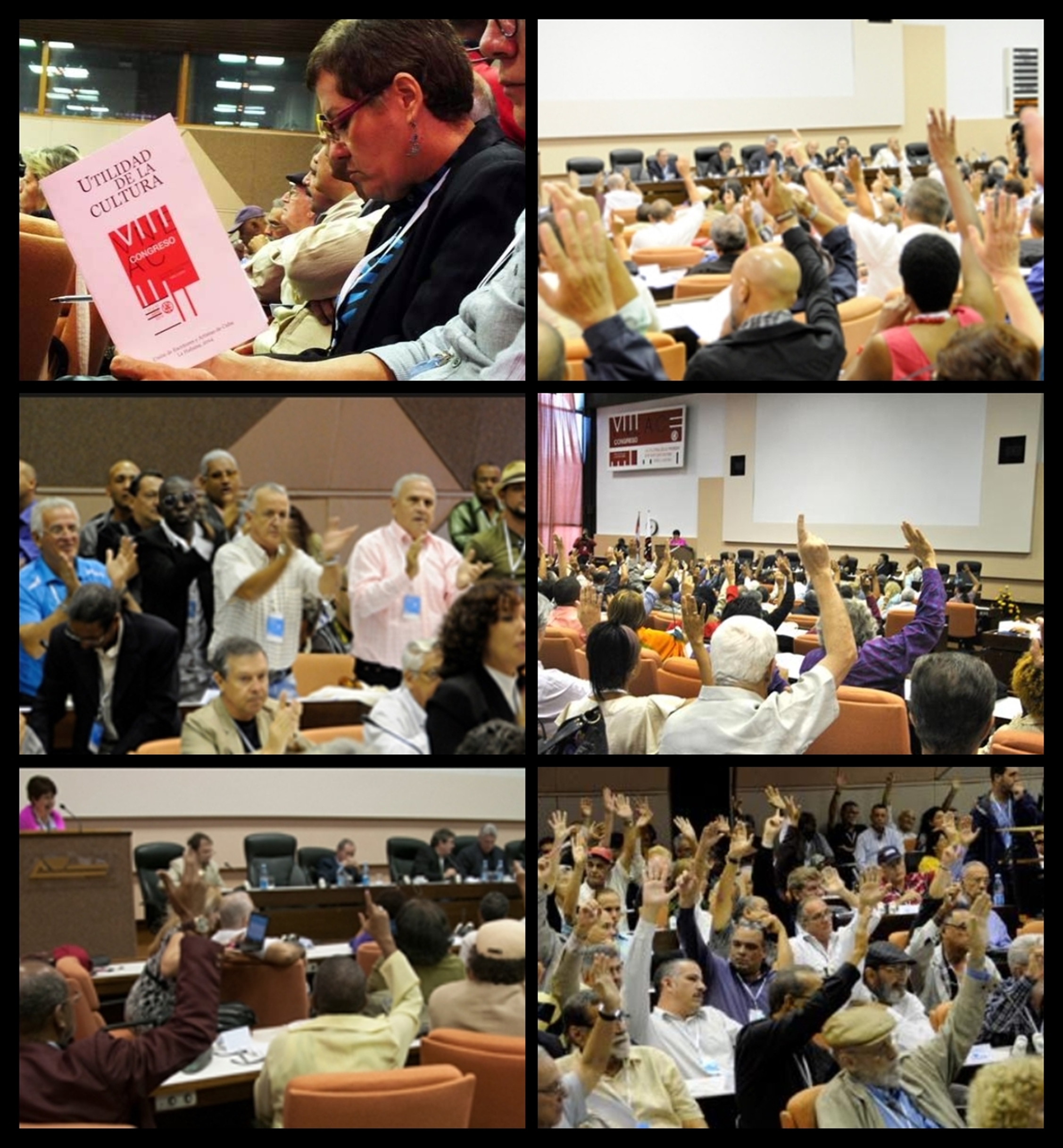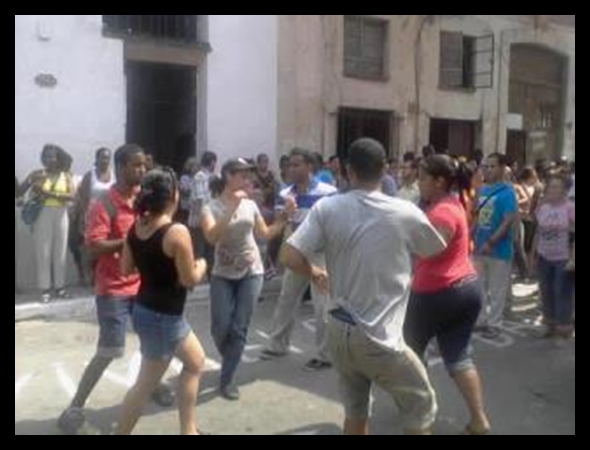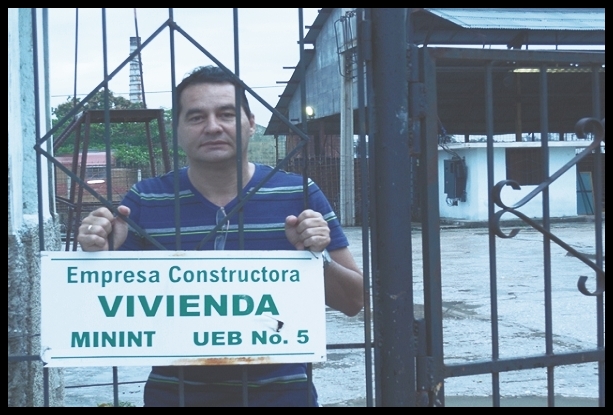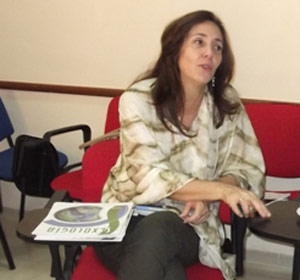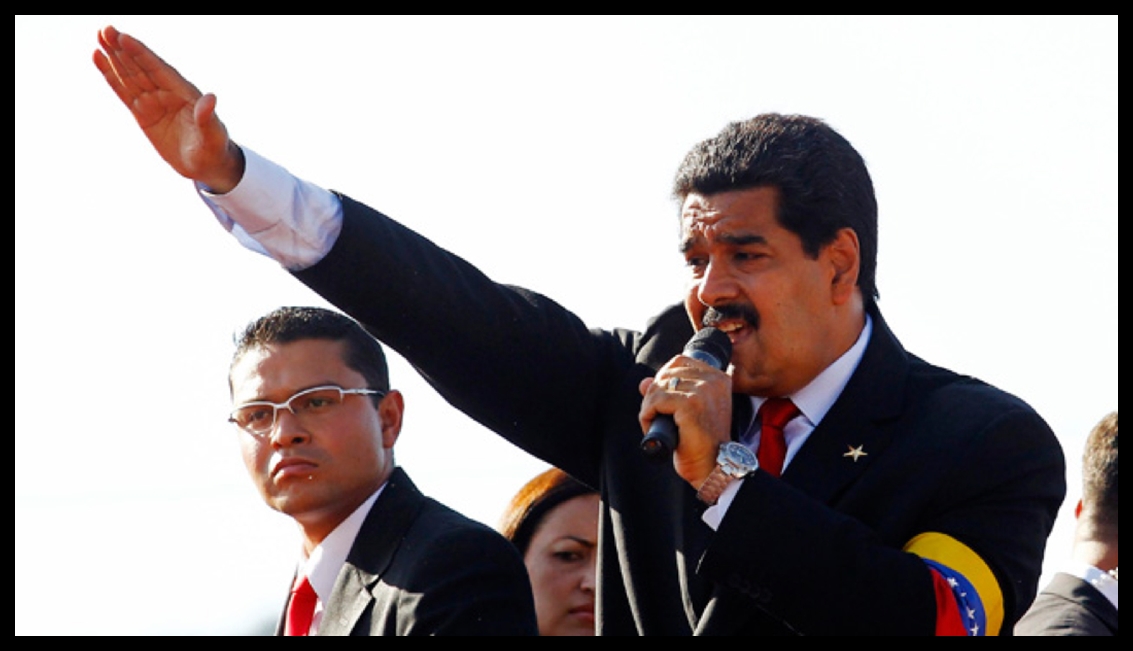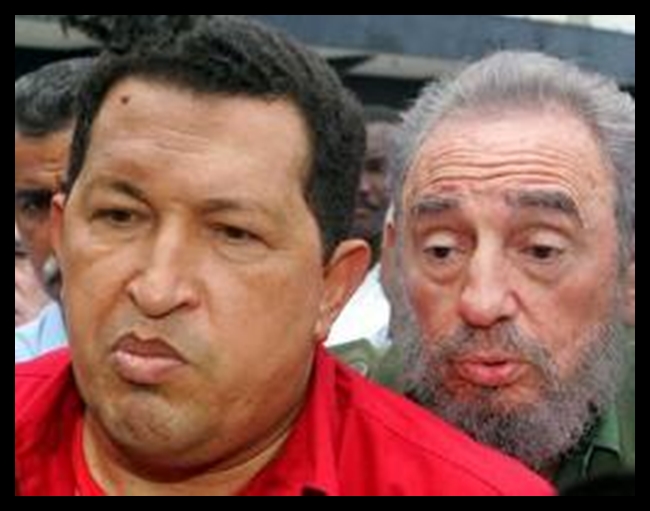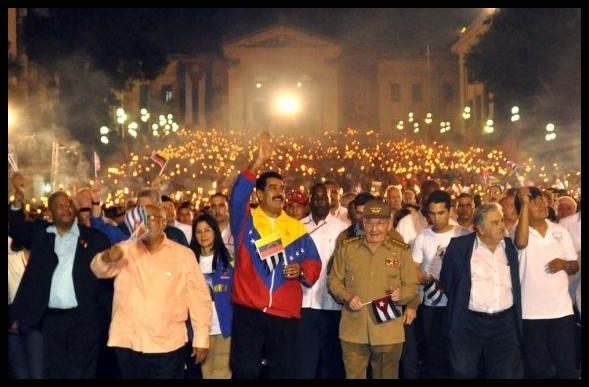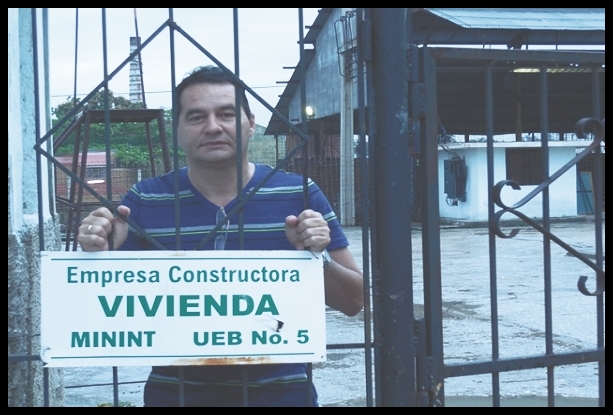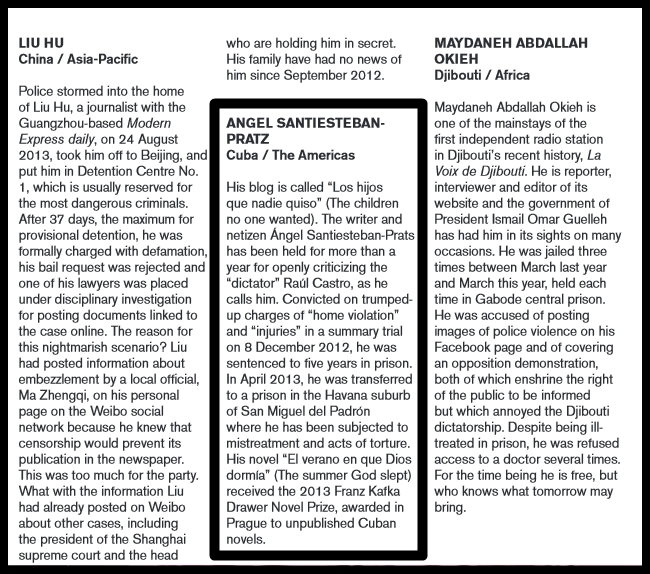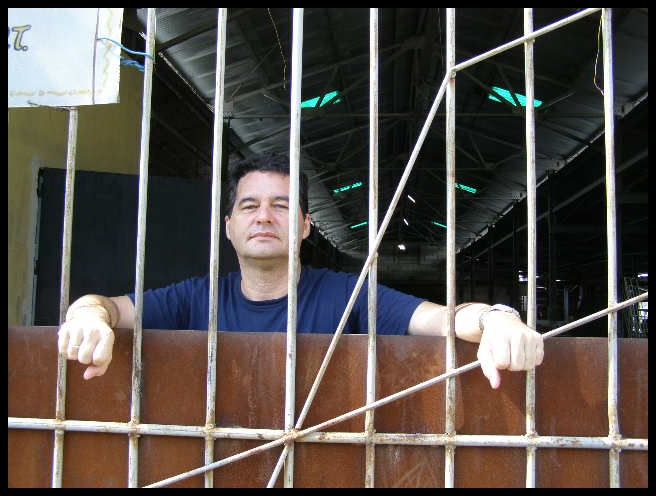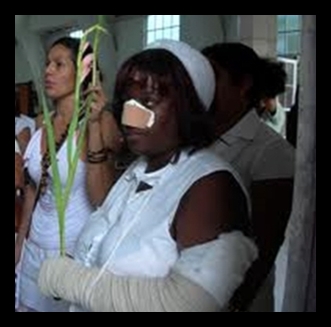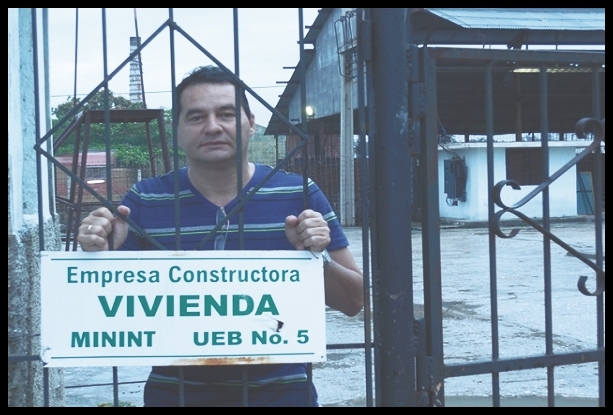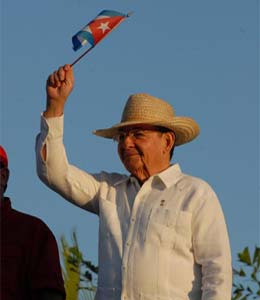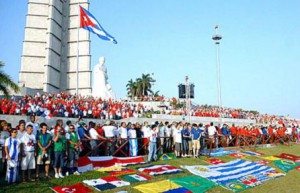It’s said that the Cuban poet Nicolás Guillén spoke to him of an inexperienced lawyer recently released from jail. He was called Fidel and had assaulted a barracks in Santiago de Cuba. What isn’t known is in what terms Guillén referred to Castro.
The author of Negro Bembón, convinced Communist and member of the Popular Socialist Party (PSP), probably described the seditious man from Birán as a petty bourgeois, a screw-up, or a baby gangster. At least that was the PSP profile that fit the then unknown Castro.
One morning in April 1998, the fiftieth anniversary of the Bogotazo, the bearded one, mythomaniac, published what was perhaps his best journalistic chronicle, intending to demonstrate that a young reporter who stubbornly insisted on kicking an Underwood typewriter, after the death of Eliécer Gaitán in Bogota, was Gabriel García Márquez.
Castro, according to his chronicle, went to help him and solved the problem in the easiest way: slamming it against the wall. In the many late nights that Fidel Castro and García Márquez chatted with a thermos of coffee in Protocol Residence No. 6, in Laguito to the west of Havana, the Comandante always tried to sneak in his outlandish theories.
The Colombian, who only made revolution with a pen, out of courtesy, didn’t contradict the guerrilla. Of far off Bogota, he only remembered the literary circles, the editing of The Spectator newspaper, the whores and the three nights and four days of partying drinking like a fish with his friends, between vallenatos and boleros.
Gabo said that he first saw Castro at the airport in Camaguey, a province 500 kilometers east of Havana. Be that as it may, the reality is that the two men were friends.
In 1959, Gabriel made a living through journalism, and from Caracas made landfall on the island, looking for fresh news about the Revolution. García Márquez had not yet given birth to Macondo, nor Aureliano Buendia. Some minor stories and a novella, Hojarasca, were his entire literary opus.
With his friend Plineo Apuleyo he was a correspondent for Prensa Latina. Later, already a giant, after his Nobel in 1982, when extolling magical realism in Latin America and showing that Macondo wasn’t an invention, but a continent that was born in real time after Rio Bravo and extending to Patagonia, more than friends, Fidel and García Márquez were accomplices.
A couple of times Castro used his favors to send messages to Bill Clinton. To Gabo’s residence on the outskirts of the capital, Castro would arrive without warning. It’s said that the author of Chronicle of a Death Foretold gave his writings to the Comandante to edit.
In exchange, the Cuban strongman offered the choice bits that a first-rate journalist like Gabo knew how to use. Operation Carlota, about the Cuban troops in Angola, or Shipwreck on Dry Land, about the child rafter Elián González, were the fruits of these confidences.
Criticized by his adversaries for his friendship with an autocrat, against all the storms, Garcia Marquez maintained his affection for Fidel Castro. But he wasn’t too keen on the new caudillos and revolutions of the 21st century. He kept his distance from Chavez, Evo Morales and friends.
Gabo did not like clones. He preferred the original. And Castro, like it or not, was. His death hit the island. Although there might be the impression that people carried on. Trying to buy potatoes, milk powder or engage in polemics about the end of the baseball season. But no. His departure hurt.
Ordinary Cubans had the privilege of reading his books at affordable prices. The man from Aracataca always donated his copyright to Cuba.
When Love in the Time of Cholera was sold in Havana the lines to purchase it were a block and a half long. In not a few of the slums, three glasses of brown sugar, two packs of cigarettes and a can of condensed milk (all luxuries in a Cuban jail), rented in prison News of a Kidnapping or No One Writes to the Colonel.
Cubans saw him as theirs. He was a friend of Pablo Milanes and Silvio Rodriguez. He had a retrospective collection of Cuban music. In December 1986, in San Antonio de los Baños, he inaugurated the International School of Film and Television, a subsidiary of the Foundation of New Latin American Cinema, his legacy in Cuba.
Fidel Castro loses another friend. In one year, God has taken Nelson Mandela and Hugo Chavez. And now Gabo goes. A friend in every meaning of the word.
The only known argument was a denial that Castro demanded when García Márquez said that one afternoon under a blazing sun, Fidel arrived at his house and after devouring a huge sea bass, without stopping for breath, ate 18 scoops of ice cream.
Fidel Castro didn’t like it. And he asked that the page be amended. Gabo didn’t do it. Like he didn’t ask him to correct the historical mistake, wanting to introduce it in the scene of the Bogotazo riots.
The Comandante’s life was long ago. Partners and adversaries of the Cold War are already in the other world. And he ’s still here, in the capital of the Caribbean Macondo.
No one better than Gabo profiled a continent of loafers, the lit-up, revelers and drunkards. Around here, whoever doesn’t know how to dance, sings without crying on hearing a bolero or a ranchera, drinks a liter of spirits without getting drunk , tells stories of whores and respects only the wife of his friends, obviously, is not a native of Hispanic America.
A place where democracy is often a faded word that everyone manipulates at will. The State, a hunting trophy. And watching the clock or half hour appointments are things of gringos and Europeans.
García Márquez asked old Europe for patience. In a speech on receiving the Nobel Prize in Literature, he recounted that democracy and its institutions were established in Europe after 300 years of barbarism. Switzerland, he said, is what it is today after centuries of mercenary soldiers and crushing poverty.
The world lost one of its best Spanish-speaking writers. A reference for journalists and for his readers. Fidel Castro lost more. Perhaps his last friend.
Iván García
Photo: Havana, 3 March 2000. Fidel Castro and Gabriel García Márquez talk animatedly during the dinner for the Havana International Festival. Taken from the Dominican paper Hoy.
20 April 2014

